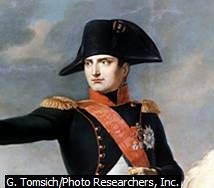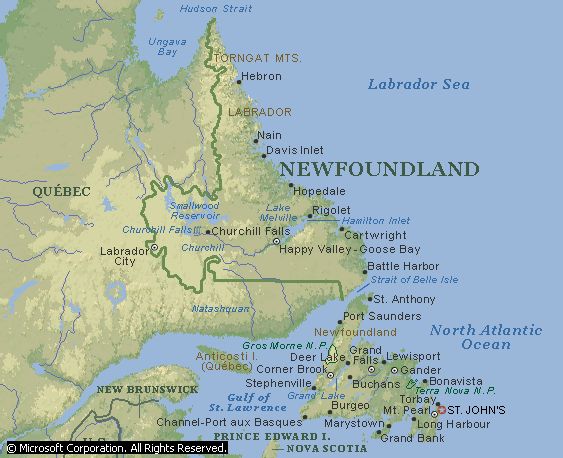.
Based on Merriam-Webster's
Collegiate® Dictionary
Use the BACK button
on your browser to return
nostalgia.noun
a bittersweet longing for things, persons, or
situations of the past; the condition of being homesick; homesickness
nostalgically.adverb
nautical.adjective
of, relating to, or characteristic
of ships, shipping, sailors, or navigation on a body of water
necessary.adjective
absolutely.essential;
indispensable;
requisite.(the
necessary tools; air is necessary for breathing)
necessary.noun,
plural.necessaries
something indispensable
necessitate, necessitated,
necessitating,
necessitates.transitive
verbs
to make necessary or unavoidable
necessitation.noun
necessitative.adjective
necessarily.adverb
of necessity; inevitably
necessity.noun,
plural.necessities
the condition or quality of being necessary;
something necessary (the necessities of life include food, clothing and
shelter)
of necessity.idiom
as an inevitable.consequence;
necessarily
needless.adjective
not needed or wished for; unnecessary
needlessly.adverb
needlessness.noun
net.noun
an openwork fabric made of threads or cords that
are woven or knotted together at regular intervals; a device for capturing
birds, fish, or insects; a barrier against flying insects (a mosquito net);
a mesh for holding the hair in place; something that entraps; a snare
Computer Science.-.an
electronic network
net, netted,
netting,
nets.transitive
verbs
to catch or ensnare in or as if in a net
netter.noun
net.adjective
remaining after all deductions have been made,
as for expenses (net profit); remaining after tare is deducted (net weight);
ultimate; final (the net result)
net.noun
a net amount, as of profit or weight; the main
point; the essence (the net of our discussion)
net, netted,
netting,
nets.transitive
verbs
to bring in or yield as profit; to clear as profit
nag, nagged,
nagging,
nags.verbs
transitive verb use.to
annoy
by constant.scolding,
complaining, or urging; to torment.persistently
intransitive verb use.to
scold,
complain, or find fault constantly.(nagging
at the children); to be a constant source of anxiety
or annoyance
nag.noun
one who nags
nagger.noun
naggingly.adverb
niggling.adjective
petty,
especially in a nagging or annoying way; trifling.(pointless
concern over niggling details)
niggling.noun
nigglingly.adverb
niggle, niggled,
niggling,
niggles.intransitive
verbs
to be preoccupied
with trifles or petty
details; quibble.(the
clerk always niggled over every penny)
niggler.noun
naughty, naughtier,
naughtiest.adjective
behaving disobediently or mischievously.(a
naughty child); indecent; improper
(a naughty joke)
naughty.noun,
plural.naughties
one that is naughty
naughtily.adverb
naughtiness.noun
novel.noun
a fictional.prose.narrative
of considerable length, typically having a plot that is unfolded by the
actions, speech, and thoughts of the characters
novel.adjective
strikingly new, unusual, or different
novelly.adverb
nigh, nigher,
nighest.adverb
near in time, place, or relationship (evening
draws nigh); almost (talked for nigh onto two hours)
nigh, nigher,
nighest.adjectives
being near in time, place, or relationship; close;
being on the left side of an animal or a vehicle (pulling hard on the nigh
rein); being the animal or vehicle on the left (the nigh horse)
nigh.preposition
not far from; near
nigh, nighed,
nighing,
nighs.transitive
& intransitive verbs
to come near to or draw near
nationalize, nationalized,
nationalizing,
nationalizes.transitive
verbs
to convert from private to governmental ownership
and control usually without permission from or compensation to the owners
and without sanction by citizens
(nationalize {steal} the airline industry) - 'nationalize' is no longer
in vogue, the term not used by governments
anymore due to negative connotation.-
today done mostly hidden of public scrutiny
through corporations created to operate at arms
length from the perpetrators
nationalization,
nationalizer.nouns
nescience.noun.(pronounced
'nesh e ence' and 'nesh ence')
absence of knowledge or awareness; ignorance
nescient.adjective.&.noun
nourish, nourished,
nourishing,
nourishes.transitive
verbs
to provide with food or other substances necessary
for life and growth; feed
nourisher.noun
nutrition.noun
the process of nourishing
or being nourished, especially the process by which a living organism.assimilates
food and uses it for growth and for replacement of tissues; the science
or study that deals with food and nourishment, especially in human beings;
a source of nourishment; food
nutritional.adjective
nutritionally.adverb
notify, notified,
notifying,
notifies.transitive
verbs
to give notice to; inform.(notified
the citizens of the curfew by posting signs); to give notice of; make known
notifier.noun
notification.noun
the act or an instance of notifying; something,
such as a letter, by which notice is given
Napoleon Bonaparte.(Napoleon
I), 1769-1821, emperor of the French, who consolidated and institutionalized many reforms of the French Revolution.
One of the greatest military commanders of all time, he conquered the larger
part of Europe and did much to modernize the nations he ruled.
who consolidated and institutionalized many reforms of the French Revolution.
One of the greatest military commanders of all time, he conquered the larger
part of Europe and did much to modernize the nations he ruled.
In 1799 he failed to capture Syria,
but he won a smashing victory over the Turks at Abû Qîr (Abukir).
France, meanwhile, faced a new coalition; Austria, Russia and lesser powers
had allied with Britain. Bonaparte decided to leave his army and return
to save France. In Paris, he joined a conspiracy against the government.
In the coup d'etat of November 9-10, 1799 (18-19 Brumaire), he and his
colleagues seized power and established a new regime - the Consulate.
Under its constitution, Bonaparte,
as first consul, had almost dictatorial powers. The constitution was revised
in 1802 to make Bonaparte consul for life and in 1804 to create him emperor.
Each change received the overwhelming assent of the electorate. In 1800,
he assured his power by crossing the Alps and defeating the Austrians at
Marengo. He then negotiated a general European peace that established the
Rhine River as the eastern border of France. He also concluded an agreement
with the pope (the Concordat of 1801), which contributed to French domestic
tranquillity by ending the quarrel with the Roman Catholic church that
had arisen during the Revolution. In France the administration was reorganized,
the court system was simplified, and all schools were put under centralized
control. French law was standardized in the Code Napoléon, or civil
code and six other codes. They guaranteed the rights and liberties won
in the Revolution, including equality before the law and freedom of religion..Microsoft®
Encarta® Encyclopedia 99. © 1993-1998 Microsoft Corporation. All
rights reserved.

Ask
Suby
.
Terms
of Use Privacy
Policy
.
|